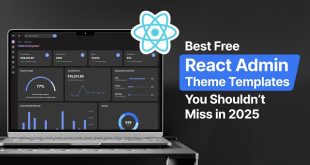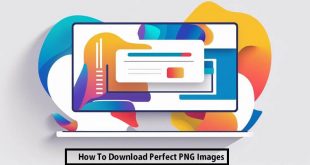Hi everyone, nowadays more and more businesses turning to the cloud for their infrastructure and service requirements. Cloud computing is quickly becoming a necessary skill for every software developer or IT professional. In any case, if you want to learn about cloud computing, you’ve come to the perfect spot. In this post, I’ll go over some of the top courses for learning the fundamentals of cloud computing.
Sincerely, I have struggled to locate a top-notch course on cloud computing. However, after experimenting with a few offerings on Coursera, Pluralsight, and Udemy, I have finally narrowed down my search. The following are the five guidelines for learning the fundamentals of cloud computing.
These courses offer a thorough introduction to every facet of cloud computing. But let’s first clarify what the cloud is and its advantages before seeing the courses. What issue does cloud computing address, and why is it generating so much interest?
What is Cloud Computing?
Although the term “cloud” can mean different things to different people and be used to refer to different things. Generally speaking, it refers to a variety of services that are prepared for usage by your application. These services are offered by numerous cloud service provider firms, including Microsoft Azure, Amazon Web Service, and Google Cloud Platform.
What exactly are those services now? These could include networking, servers, storage, processing power, and other infrastructural services. These services are frequently provided under the umbrella of infrastructure as a service, or IaaS.
Why Learn Cloud Computing?
Think lucrative salaries, endless career opportunities, and the chance to be at the forefront of tech innovation. Sound tempting? That’s the reality the cloud offers. Cloud skills are consistently ranked among the most in-demand by employers across industries, with salaries reflecting that value. Plus, the cloud isn’t a fad – it’s a fundamental shift in how we compute, meaning job security and constant growth potential.
The Best Online Courses for Novices to Learn Cloud Computing
Now that you are aware of what the cloud is and its advantages in terms of cost, setup simplicity, effectiveness, and scalability. It’s time to delve further and take advantage of these online courses, which will improve your understanding of cloud computing.
1. Microsoft Azure (Coursera)
This course is ideal for getting started with cloud computing. Whether your goal is to understand the fundamentals of cloud computing or to be ready for the Azure Fundamentals test. This Microsoft-provided training is ideal for getting started in the cloud computing industry and getting ready for the Azure Fundamental test.
The four courses in this Microsoft certification program will serve as a solid foundation of essential knowledge to get you ready for both a career in the cloud and the AZ-900 certification exam. A basic understanding of Microsoft Azure ideas, essential services, key solutions and management tools, network and general security, privacy, governance, compliance capabilities, Microsoft Azure cost management, and service level agreements will all be imparted during this training.
2. AWS Cloud Computing for Novices
I had a difficult time understanding what the cloud was and why everyone was talking about it when I first started studying it. It seemed like a faceless person, but as I learned about AWS, I was able to swiftly correlate different cloud concepts. As a result, AWS is like giving the cloud a face, which is why I advise everyone just learning about the cloud to take this course.
This course makes it simple to understand what clouds are and the advantages they offer by breaking down important cloud concepts like IaaS, PaaS, and SaaS using examples from AWS. Being familiar with AWS is advantageous as well, as it’s one of the most popular cloud platforms. Having expertise with AWS can help improve your resume for any AWS positions as well as developer positions that require AWS knowledge.
3. Cloud Computing (Pluralsight)
As some of you may know, Pluralsight is one of my favorite online learning resources, and I also have a membership there. I became interested in this course after exploring Pluralsight for learning resources when I began delving into cloud computing in general and AWS specifically.
An excellent introduction to cloud platforms, such as Microsoft Azure and Amazon Web Services, as well as private clouds—which bring cloud computing in-house—is given in this course. After finishing, you’ll understand the basics of cloud computing and be prepared to look into particular applications.
4. Level 1: Introduction to Cloud Computing [Udemy]
I frequently suggest this additional entry-level Cloud Computing course on Udemy to my readers. This course teaches the key components of cloud computing and will provide you with a basic knowledge of the concept.
It also discusses four cloud deployment models: private, public, hybrid, and community models; and three services models: Infrastructure as a Service (IaaS), Software as a Service (SaaS), and Platform as a Service (PaaS).
5. Google Cloud Certification — GCP Associate Cloud Engineer
It is best to start preparing for the GCP Cloud Engineer certification if you want to understand cloud computing using the Google Cloud platform, and this course is ideal for that. The best-selling course on Udemy, “GCP Associate Cloud Engineer — Google Cloud Certification,” has received an astounding 4.6 rating.
This course, which consists of almost 18 hours of information, is specifically helpful for individuals new to Google Cloud. It covers fundamental subjects like computation, networking, storage, and database services offered by the Google Cloud Platform.
FAQs
Q1: What are the most in-demand cloud certifications?
The answer depends on your career goals, but some popular choices include AWS Certified Solutions Architect, Azure DevOps Expert, Google Cloud Certified Professional Cloud Architect, and Cloud Security Professional (CCSP). Research current trends and industry reports to stay updated on the most sought-after certifications.
Q2: Can I learn cloud computing for free?
Absolutely! Many platforms offer free introductory courses, MOOCs, and even certification preparation resources. However, for in-depth learning and practical experience, paid courses often provide more comprehensive content and support.
Q3: What are some beginner-friendly cloud projects?
Start by building simple projects that reinforce your learning. So, try deploying a static website on AWS S3, building a basic serverless application on Azure Functions, or creating a data analysis pipeline on Google Cloud Platform. Look for project tutorials and guides online to start.
Q4: How can I showcase my cloud skills to potential employers?
- Build a portfolio: Showcase your completed projects on GitHub or your personal website.
- Contribute to open-source projects: Demonstrate your skills and gain experience by contributing to relevant open-source projects.
- Earn relevant certifications: Validate your knowledge and expertise with industry-recognized certifications.
- Network and attend events: Connect with other cloud professionals at industry events, conferences, and online communities.
Q5: What are the future trends in cloud computing?
The cloud is constantly evolving, but some key trends to watch include:
- Hybrid and multi-cloud environments: Businesses will increasingly leverage multiple cloud providers for optimal performance and cost-efficiency.
- Serverless computing: This pay-per-use model will gain further traction, eliminating server management and simplifying development.
- Edge computing: Processing data closer to its source will become increasingly important for IoT and real-time applications.
- Artificial intelligence and machine learning: Cloud platforms will integrate AI and ML capabilities, offering powerful new tools for businesses.
By staying informed about these trends and continuously upskilling yourself, you can ensure your cloud career remains future-proof and exciting.
Conclusion
In Conclusion, launching your cloud career doesn’t happen overnight, but with the right education, dedication, and a dash of passion, you can become a sought-after cloud professional. Choose wisely, embrace the learning process, and watch your career trajectory soar to new heights!
 free html design Free html design templates
free html design Free html design templates






